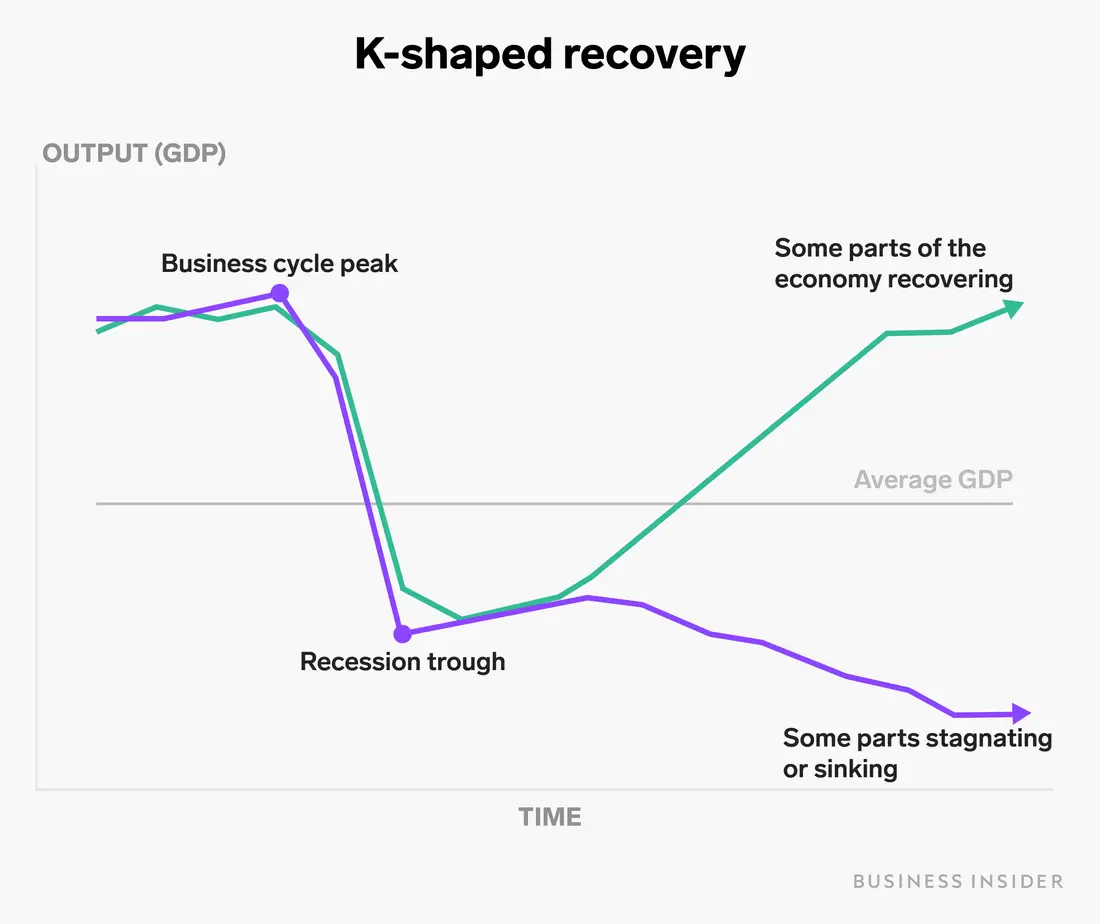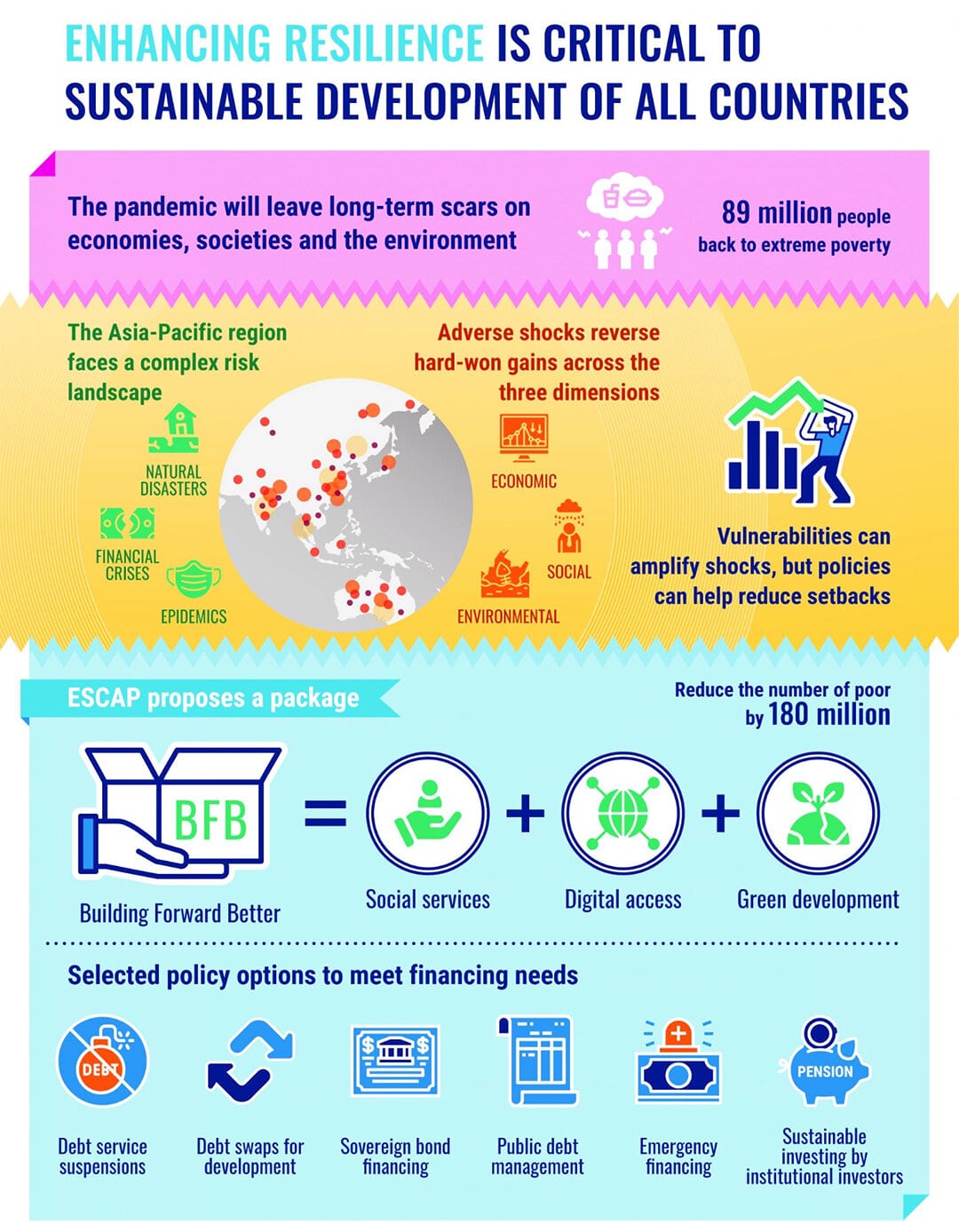Indian Economy
Economic and Social Survey of Asia and the Pacific 2021: UNESCAP
- 01 Apr 2021
- 5 min read
Why in News
A report ‘Economic and Social Survey of Asia and the Pacific 2021: Towards post-Covid-19 resilient economies’ has recently been released by the United Nations Economic and Social Commission for Asia and the Pacific (UNESCAP).
- According to the report, India is estimated to record an economic growth of 7% in 2021-22, over a contraction of 7.7% witnessed in the previous fiscal on account of the pandemic’s impact on normal business activity.
Key Points
- Other Observation Regarding India:
- India’s 2021 economic output, however, is expected to remain below the 2019 level despite a robust reduction in new Covid-19 cases and the start of vaccine roll-out.
- India entered the pandemic with already subdued GDP (Gross Domestic Product) growth and investment.
- Moreover, one of the most stringent lockdowns in the world caused the severe economic disruptions that the country experienced in the year 2020.
- A subsequent change in lockdown policies and success in reducing infection rates supported an impressive economic turnaround in the later months of 2020.
- Challenges: The report mentions two major challenges for India on its path to faster recovery.
- Maintaining low borrowing costs, and
- Keeping non-performing loans in check.
- Observation Regarding Asia Pacific Countries:
- The socio-economic impact of the Covid-19 pandemic was amplified due to lack of resilience and investments in people and the planet.
- China’s swift and effective response to Covid-19 enabled it to become the only major economy worldwide to achieve a positive annual economic growth rate in 2020.
- On an average, developing Asia-Pacific economies are expected to grow 5.9% in 2021 and 5% in 2022.
- The prospect of a K-shaped recovery, characterized by uneven post-pandemic recovery across countries and widened inequality gaps within countries, is highlighted as a primary policy challenge.
K-Shaped Recovery
- A K-shaped recovery occurs when, following a recession, different parts of the economy recover at different rates, times, or magnitudes. This is in contrast to an even, uniform recovery across sectors, industries, or groups of people.
- A K-shaped recovery leads to changes in the structure of the economy or the broader society as economic outcomes and relations are fundamentally changed before and after the recession.
- This type of recovery is called K-shaped because the path of different parts of the economy when charted together may diverge, resembling the two arms of the Roman letter "K."
- Suggestions:
- For a more robust and inclusive recovery, the report calls for a more synchronised Covid-19 vaccination programme across countries. There is a need to leverage regional cooperation.
- It recommends that fiscal and monetary support should be sustained, as premature tightening could increase long-term scars.
- Continuity in policy support is a must and recovery policy packages should focus on building resilience and investing in the 2030 Agenda for Sustainable Development.
- To deal with various economic and non-economic shocks, a more integrated risk management approach to planning and policymaking is needed.
Economic and Social Survey of Asia and the Pacific
- Produced annually since 1947, the Economic and Social Survey of Asia and the Pacific is the oldest United Nations report on the region’s progress.
- The Survey monitors regional progress, provides cutting-edge analyses and guides policy discussion on the current and emerging socio-economic issues and policy challenges to support inclusive and sustainable development in the region.
- Since 1957, the Survey has also contained a study or studies focusing on a significant aspect or challenge relevant to the economies of the Asia-Pacific region.
- The Survey of 2021 studies the impact of Covid-19 pandemic and provides insights for post-Covid-19 resilient economies.
United Nations Economic and Social Commission for Asia and the Pacific
- The United Nations Economic and Social Commission for Asia and the Pacific (UNESCAP) is the regional development arm of the United Nations for the Asia-Pacific region.
- It has 53 Member States and 9 Associate Members from Asia-Pacific Region including India.
- Established: 1947
- Headquarters: Bangkok, Thailand
- Objective: To overcome some of the region’s greatest challenges by providing results-oriented projects, technical assistance and capacity building to member States.






